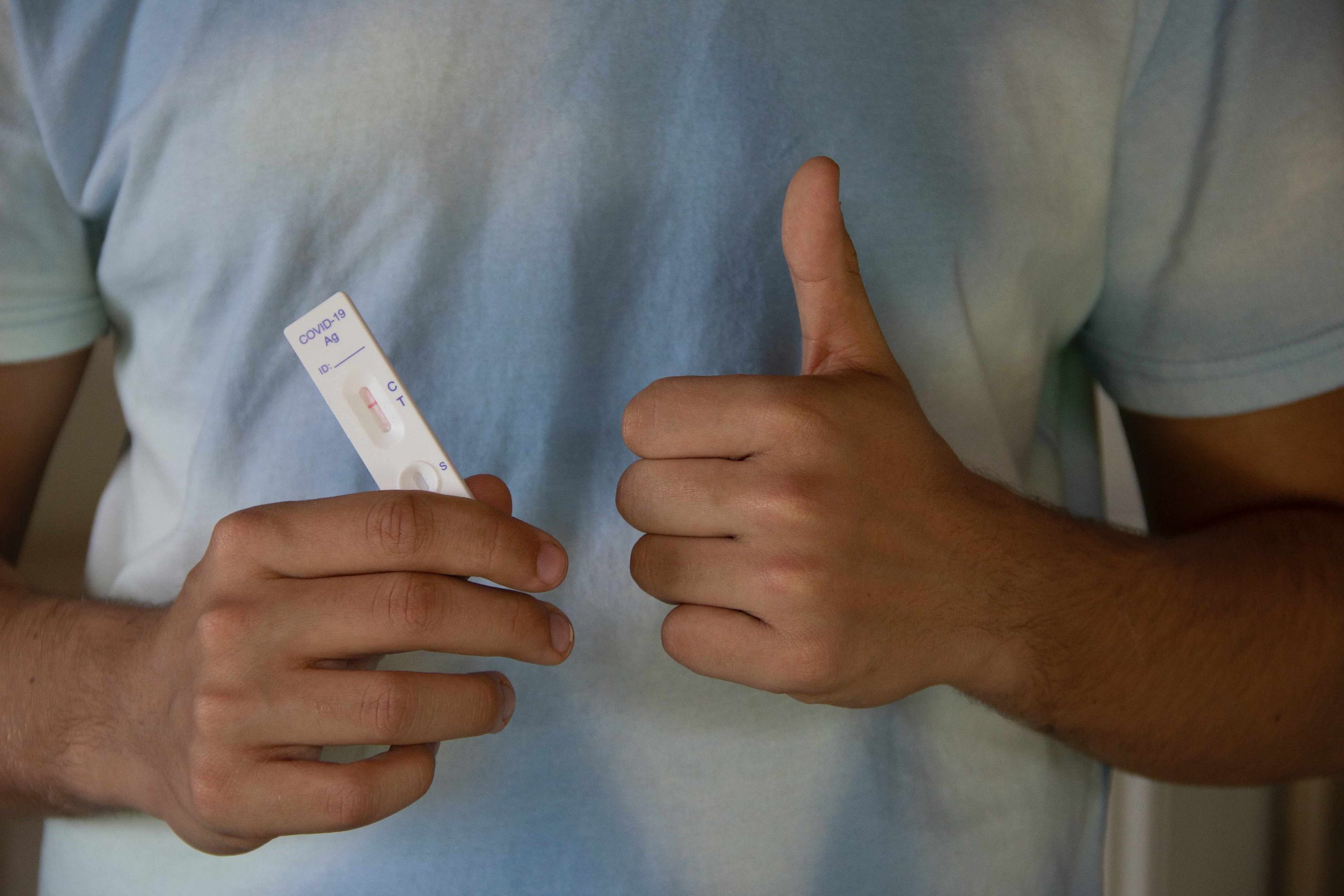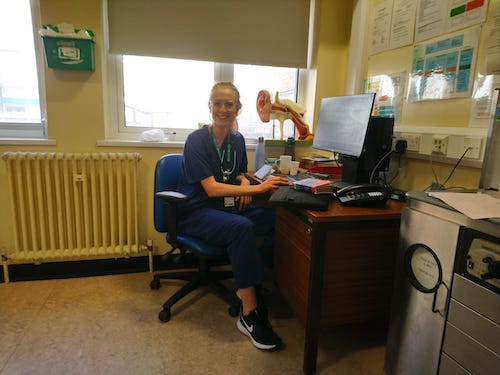All people are able to undertake training to be able to do an official COVID-19 rapid antigen test for their services in Germany.
Contrary to the UK, many German states currently ask citizens to be vaccinated, recovered or tested to enter public places like clothes shops, restaurants and sports facilities. As only 20% of Germans are fully vaccinated, the majority of the population must provide an official, stamped, negative COVID-19 rapid antigen test, not older than 24-hours, if they want to enter specific public facilities. For many, this extra effort is very inconvenient, and small businesses in particular want to test their customers directly on-site to prevent extra hassle for their clients.
Ulla Fachinger, a yoga teacher in Stuttgart, Germany, has been unable to open her studio since October 2020 when Germany went into its second lockdown. Since then, she has offered yoga lessons online to earn enough to pay the rent and maintenance fees for the studio. Now that the numbers are going down, Mrs Fachinger is ready to offer in-person classes again.
Not all of my students are vaccinated, and luckily only very few had a COVID-19 infection. This means that the majority of my students need a negative test to partake in classes.
As the test result cannot be older that 24-hours to be able to join a yoga class, Mrs Fachinger has decided to take a rapid antigen test training so that she can offer her students a stamped test right before class which they can then use for other activities within the 24-hour timeframe.
This is especially helpful for people who want to come to class spontaneous or were unable to go to a testing site during the day. Now they can combine yoga and testing in one trip! And as it lasts 24-hours, they can then use the test I do to go shopping, out to dinner, or go to the hairdressers.
Mrs Fachinger had to complete a training with an official organisation so that she is aware of the requirements, the rules, and the risks if she wants to offer this service to her students.
One of the organisations that now supports individuals in corona testing is Die Johanniter. Die Johanniter, a non-profit humanitarian organisation, currently offer three types of rapid antigen test training for private individuals. The trainings take place in presence, as a hybrid or e-learning course. In these trainings, individuals learn how to prepare, use and evaluate rapid antigen tests. The course is aimed at people who need to perform rapid antigen tests on other people, e.g. teachers, employers, and people looking to test clients on-site.
Ralf Sick, Head of the Education Division at Die Johanniter, sees testing as an important strategy in this Corona pandemic. This means that there have to be more offers than just official testing stations or testing in front of retirement homes. There is a need for individuals to learn how to perform proper, certified tests.
Of course some people have a certain hesitation to push such a test swab through the nose all the way to the back of the throat! So that it really works properly and is safe for both sides, for the person who is being tested and the person testing, is why we have offered this e-learning programme.
The tests themselves, for example the nasal swab test, have to be from a registered provider so that the test is official. People wanting to offer testing therefore need to buy these tests from official organisations. Only then can these tests be used to enter establishments.
The initiative that every person can learn how to perform a proper test does not only increase the number of areas people can go to get tested, but they can also support small business owners such as Ulla Fachinger in reopening their establishments.






